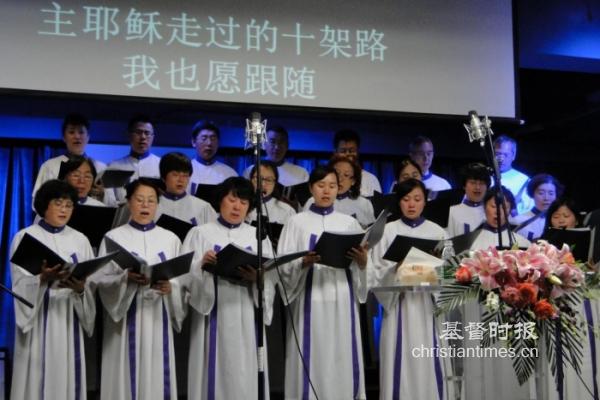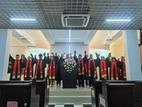During thirty years of reform and opening up, the freedom of religion being implemented, and China Christianity also usher in a new era of vigorous development. The growth of the number of Christians and churches has gradually brought a new urgent trend that we need to face: publicity.
How do the Chinese Church and Christians better correspond to face the challenges and changes in this trend? Recently a House-church researcher Ran Liang, who has been doing researches on House-church, accepted an Exclusive Interview of CCD to share his observation and thoughts on this topic.
Ran Liang, with an intellectual background, has been a Christian for more than ten years, mainly serving in the urban house churches. He has been engaged in researches on belief and public issues. He is involved in different ministries, such as church pastoring, Christian education, Christian culture, etc. He also thinks a lot for the present situation and development of house churches.
The main reason to he talks about the topic of "publicity" is that it's still a burden on his concerns about the "faith and public life" of the Chinese House-church and Christians. He has been paying attention to this topic for a few years; he began to launch a number of related lectures and discussions gradually to help the house churches and Christians to become more aware of this trend.
CCD:At present in China, less people pay attention to and explore the "faith and public life". You are one of them. Why do you focus on promoting the House churches to pay attention to "Public"? Ran Liang:The term "House church" itself is a product of a particular historical condition. We now generally believe that the publication of We, Because of Belief by Wang Mingdao in 1955 is the beginning of the House church. I have noticed that there are activities to celebrate Chinese house church established for 60 years in 2015.
What was the reason of the birth of Chinese house churches? The new society in 1955 was a versatile society and the administration was a comprehensive control. The background of the birth of house church was that at that time the whole society were shrinking, especially when the Cultural Revolution, even no society; the country can directly control the streets even the villages. There is no other way for the church, so the church can be only back to house. Because it is difficult to fully control the family; it is for this reason, the house church started from the most marginal places in rural area. Started as family worship, it was called "house church"; it is the product of a certain historical conditions.
Therefore, this means that the house church is not necessarily limited in the house, not as a public space. We now understand the idea of "public" in a very narrow way. In fact, as long as people involved, the existence of the public is very natural. So we understand this concept and will know that "house church" is the product of specific historical conditions.
Chinese house churches are facing several big changes after decades of the development, especially after 2000. The first transition is from the countryside to the cities, the second change should be from the edge of the society gradually to the inside of the society and the third shift is from the private sector to enter into the public domain.
The typical form of a traditional house church is to rent a house and to have congregation in the house. If the house has no more room for the believers, the other house will be rent. But through the event of Beijing Shouwang church and Zhejiang cross-removing, we know that house church cannot stay long as secreted, underground, private space (state). Active or passive, it's the inevitable trend for the house church to step into the public space, to participate in public life.
House churches are "black"(meaning unregistered) because of the previous environment. If you don't know the people inside the church, it's hard to know where the congregation are. You don't know the contact of the church, and you also don't know the church workers team, and those only adapt to the era of the past. But now, especially in the upper tier cities such as Beijing, Shanghai and Guangzhou, many churches are public more and more, and they publicize their own social media websites and their address. Even in the office, they are in the process of slowly opening up.
I had saw a report talking about the Zhejiang cross-removing event. I totally agree with that point. I see similarities between Zhejiang Cross-removing and Beijing Shouwang church and my conclusion is this: Chinese house church shall be in more public space.
CCD:In this process, what do house churches do to better adapt to the shift and to fit this trend?
In my opinion, for more development of the church, the church should be more involved in public life. Each of we Christian is also a Chinese citizen. The church is part of Chinese civil society. Although nowadays the identity of the house church is not appropriate, either they can't register publicly. A famous political scholar, Professor Li Fan, once said in 2010 that the number of the house churches is the largest one in NGO in China. I think, for the church, whether can register or can be recognized, our church itself is to actively fulfill our cultural mission, to take responsibility of our part of Chinese civil society. We should make own contributions to the development of China's civil society.
For every Christian, it's the same. As I just mentioned, we can be both a Christian and a Chinese citizen. No matter what is happening in China, we should have our own thinking, our voice and our participation. For example, many people think that the year 2008 is the first year for Chinese house churches participate in social public affairs. It is typical reflected in the year that very many house churches and Christian entrepreneurs in China actively participate in the Wenchuan earthquake relief. At that time, as a main representative, I joined the talk between Christian entrepreneurs and Red Cross Society of China (RCSC). I remembered that talk very clearly. At that time, the RCSC gave us a donation certificate written by Chinese Christian entrepreneurs. It shows that we Christians are part of the society, and we will fulfill our responsibilities as citizens. We should make contributions to the society. Of course, we also have our own right, and we should make our own sound.
In fact this is quite normal: I am a normal part of the normal society. Everyone can do like this.
To be Contenued
Translated By: Jenny











